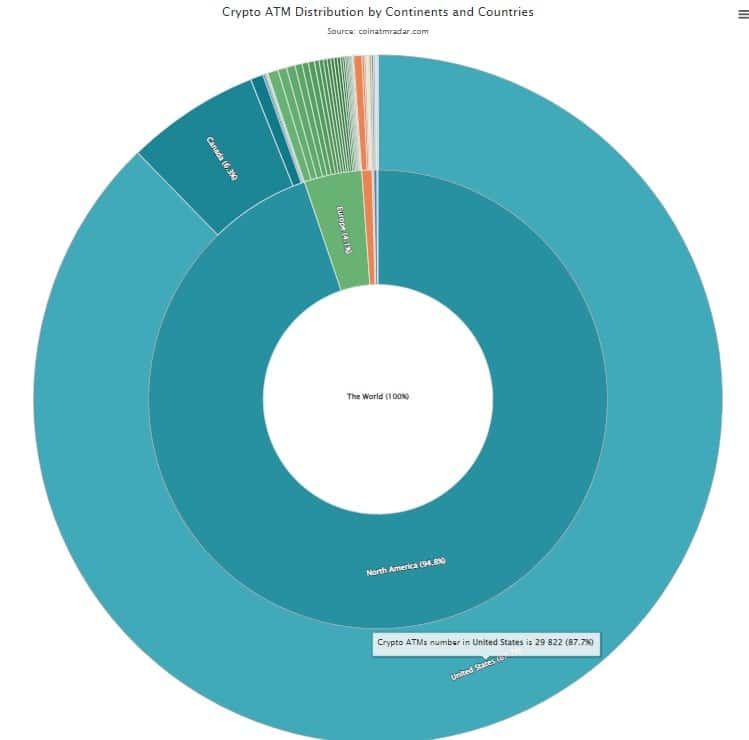Panama could become one of the Latin American countries with the most bitcoin ATMs, since during the first quarter of 2022 some 50 new equipment would be installed in its territory. With the deployment of these devices, the nation would surpass Colombia, which currently has more than 30 cryptocurrency vending machines.
The Santo Blockchain company, based in Vietnam and operating in Panama through its subsidiary Santo Pay, reported in a statement that, in 2022, it will install about 300 ATMs in Latin America; 50 of which will be distributed in Panamanian territory. Colombia and Costa Rica will be the next countries that will benefit from the distribution of these teams.
Up to now, El Salvador is the country in the region with the most widespread network of ATMs that operate with cryptocurrencies, with 205 machines available in its territory. Colombia follows with 38, while Puerto Rico is the third country on the continent with the most installed ATMs, according to data from Coin ATM Radar. However, this outlook may change over the next year if Santo Blockchain’s plan is fulfilled.
 With the installation of 300 new bitcoin ATMs, Latin America will have
the opportunity to narrow the gap since only 0.2% of the world’s
equipment is in the region.
With the installation of 300 new bitcoin ATMs, Latin America will have
the opportunity to narrow the gap since only 0.2% of the world’s
equipment is in the region.The ATMs that the firm will deploy in Latin America will synchronize with Santo Crypto, a bitcoin portfolio that is currently in the development stage, according to the statement.
The company also reported that bitcoin ATMs will be shipped from Shenzhen, China, around the third week of February 2022. It is curious that the company was inclined to send the equipment from Asia, discarding the possibility of acquiring them in the factory that already operates in El Salvador, from which they told CriptoNoticias the possibility of serving demand throughout Latin America and even the United States.
In any case, it is not surprising that the firm focuses on Panama and considers it as its gateway to the Latin American market, as this territory is increasingly friendly to cryptocurrencies. In September, a draft law was introduced for the regulation of bitcoin and other cryptocurrencies. However, the country has communicated its efforts to get off the gray list of the Financial Action Task Force (FATF), something that raises doubts about the regulation of cryptocurrencies.















